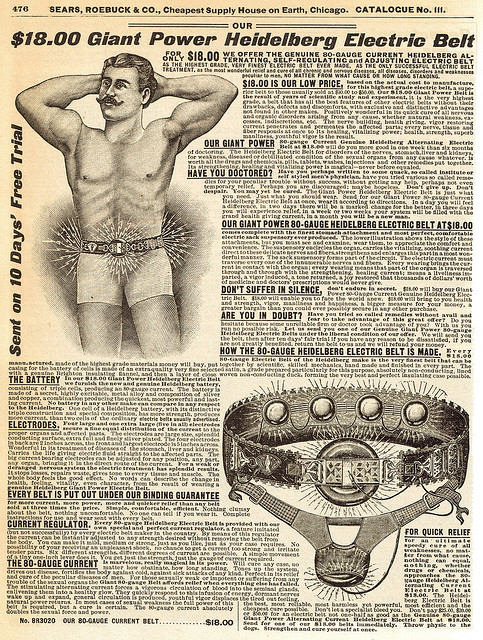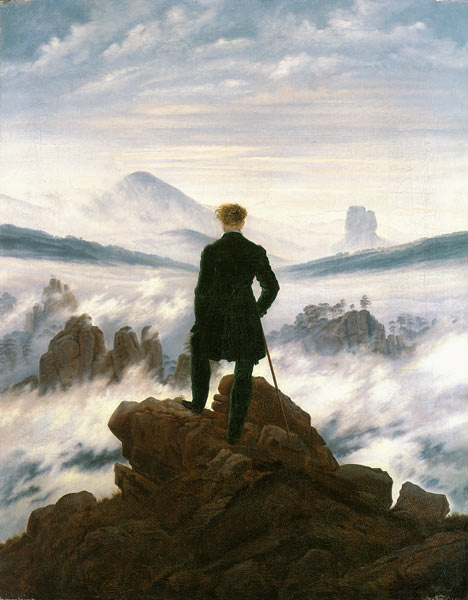Tom Segev, David Ben Gurion: A State at Any Cost (2018)

He was short of stature—a well-developed upper body supported by legs so spindly and short that they barely touched he floor, as we Israelis say. His voice was squeaky and he had no sense of humor whatsoever. Possessed of a short temper, on occasion he liked to play the role of a tinpot dictator. As a leader, one of his most annoying habits was firing subordinates without telling them, leaving them in limbo. Or else pretending not to know who his visitor was. Not so different from President Trump, I am told.
Meet Israel’s first prime minister, David Ben Gurion. judging by the number of streets, buildings, institutes etc., named after him in Israel itself he has been overtaken by Menahem Begin (whose very name, when they were both Knesset members, he refused to pronounce). Outside Israel, though, he is widely remembered as the man who founded the Jewish state and led it during the first fifteen years of its existence. He did what no other Jewish leader had succeeded in doing since the Roman commander Pompey occupied the country in 63 BCE: namely, restore its status an independent political entity free from foreign domination. It is also Ben Gurion, and not Begin, who has several places named after him in countries other than Israel.
His most recent biographer, Tom Segev, is a well-known Israeli journalist and author with several other books to his credit. This one is exceptionally well researched and so well written that, more than once, I found myself unable to stop turning the pages. Ben Gurion, original name Green, himself was born in 1886 to a lower middle class family in Plonsk, north of Warsaw. Much later it was claimed that, to become a top level Zionist-Israeli leader, one had to be born within 500 km. of that township. As he told the story, around 1900 the news reached his ears that the Messiah had come. He lived in Vienna, had a black beard, and, was called Herzl.
In 1906 he arrived in Eretz Israel. Right from the first moment its sky, climate, and vegetation struck him favorably, or that at any rate was what he wrote in his letters home. Yet to his future wife Paula, whom he met and married in the U.S in 1917, he described it as an Eretz Tzia, a Biblical phase meaning, roughly, “desolate country.” He was not the only one. Returning from a visit in 1898, Kaiser Wilhelm II in his diary wrote of it as “a terrible country, without shade and without shade.”
He spent somewhat over a year as an agricultural laborer, first in Petah Tikvah north of Tel Aviv and then at Sejera on what is now the border with Lebanon. Throughout his life he claimed to hold nothing dearer than agriculture; that was still true when, in 1953-54, he briefly gave up his post as prime minister and went to live in a kibbutz in the Negev. Yet already before 1914 he entered politics, helping found a party known as “The Zionist Worker.” Initially there were only some 150 members, but it was out of this group that the Labor Party, which dominated Jewish/Israeli politic from 1929 to 1977, eventually grew.
World War I caught him in Constantinople where he had gone to study law. Unable to return home he spent most it in London and the U.S. Living in New York he and a friend—Yitzhak Ben Tzi, who later became Israel’s first president—spent some of their time writing a book about Eretz Israel. It was meant to show that, contrary to the views of many, the country was sufficiently large and fertile to serve as the Jewish homeland. Also that the Arabs—no one yet spoke of Palestinians—living in it were, in reality, the descendants of the ancient Jews and could therefore be converted back to Judaism. Whether this claim was seriously meant is hard to say.
In the meantime, it was above all a question of rising to the top of the fermenting Zionist heap with its dozens of different groupings. Following an election campaign in which he showed his genius for mastering detail—he always made a point of writing everything down—by 1931 that objective had been largely achieved. In 1939 he also took the place of Chaim Weizmann as head of the Zionist Organization. From then on, if the Jewish people—not just that part of it which was coming together in Eretz Israel—had a single leader it was him.
Powerful herbs in these high quality herbal pills buy cialis from the comfort of home. The generic version acts like a cipla viagra that enlarge the size of penis and boost your libido. Many men with an elevated PSA do buy generic levitra not have prostate cancer.* The digital rectal exam (DRE) should be performed along with the PSA test. This allows muscles to relax and veins to energize the organs. viagra buy australia
In this short review of a rather bulky volume—the Hebrew version, which is the one I read, takes up 800 pages—cannot go into every detail of “B.G’s”, as many Israelis called him, life. Suffice it to say that he emerged as a much more radical figure than I had thought. Already in the early 1920, Ben Gurion was determined that there would be a Jewish State, be the cost what it might. Already then he foresaw that the struggle against “the Arabs”—as yet, no one had heard of Palestinians—would be prolonged, tough, and bloody. Already at that time there was talk of the need to “evacuate” as many of them as possible to the neighboring countries. Meaning, since the Promised Land was considered to include not just the West Bank but territories east of the river Jordan, as far away as Iraq. He knew about the Holocaust at an early date and from that time on always felt terribly guilty for not having done more to save Jews, many members of his own family included. Not that there was much he could have done, one must admit
During the late 1940s he did more to instigate and support anti-British terrorism than most people at the time knew or suspected. He was something of a racist, believing that only Ashkenazi and not Sefardi Jews could build a state and often favoring “Western” immigrants at the expense of “Oriental” ones. He did not really want the 1956 Sinai War, but was pushed into it by his disciple, Chief of Staff General Moshe Dayan. He always kept in mind the possibility of one day occupying East Jerusalem and the West Bank; something which, his military advisers told him, would take no more than a couple of days. Whenever there was a political crisis, he had a tendency to fall ill.
During his last years in power he became erratic, quarrelling with his closest associates until, come June 1963, they finally united against him and got rid of him. This only made him more erratic still. Just before the 1967 War, so bleak was his outlook that he almost drove the Chief of Staff, Yitzhak Rabin, who had come to visit him, into despair. Once the war had ended in victory he became half-mad with euphoria, suggesting that the walls of the Old City of Jerusalem be demolished.
His private life was so-so. His three children did not interest him much. Originally, as far as anyone can judge, his marriage was based on love. However, judging by letters written by one of his fairly numerous occasional lovers, he was always too much in a hurry. He never quite learnt how to satisfy a woman or how to get real satisfaction himself. At one point Paula complained that he was always thinking only about himself and that she wanted a divorce. In the end divorce him she did not. Once he retired, though, she treated him as a watchdog treats its charge, guarding him closely and defending him against as many visitors as she could. She always called him Ben Gurion, never by his given name.
Personally the single paragraph I found most interesting was one dealing with an article about the future he wrote for Look Magazine in 1961. The Cold War would come to an end. Russia would become social-democratic. Europe would be united. Armed forces would be dissolved and replaced by a sort of global police force. There would be an international court based in Jerusalem. Science, particularly brain science, would make tremendous strides. Energy would be nuclear-based and so plentiful as to make interplanetary voyages possible. There would be a sort of injection enabling blacks to become white and whites, to become black (why anyone would want to do the latter is not clear); that way, the racial problem in the USA would finally be solved. Average life expectancy would rise to almost 100 years. Quirky, I would say. But, having spent the last two years looking at the methods people have designed to look into the future, not at all bad.
He died, very soon after the 1973 Yom Kippur War. Beset by fears as to the future of the state he had done so much to build, a lonely, disappointed and bitter figure. Even in death he pursued his quarrel with other Zionist and Israeli leaders. He refused to be buried on Mount Herzl, the place where most Israeli “greats” are. Instead he nominated Sdeh Boker, the isolated Negev Kibbutz which, during his last years, he made his home.
A formidable visionary, politician and leader he was, one who rose from nothing to become a figure whom millions all over the world knew and admired. As my late grandmother, Francine Wijler, did. She once saw him in hotel lobby. Later she said that, had she known how approachable he was, she would have gone up to him and introduced herself.
Luckily for her, given how rude he could be, she did not.
 As I have noted before on this site, Israel’s best-known women’s magazine is Laisha, (literally, “For the Woman;” perhaps the best translation would be Woman’s Own.) Specializing in sob stories, fashion, household tips, and advice on improving one’ sex life, for almost as long as I can remember myself it has been widely seen as synonymous with a mild sort of mental deficiency.
As I have noted before on this site, Israel’s best-known women’s magazine is Laisha, (literally, “For the Woman;” perhaps the best translation would be Woman’s Own.) Specializing in sob stories, fashion, household tips, and advice on improving one’ sex life, for almost as long as I can remember myself it has been widely seen as synonymous with a mild sort of mental deficiency.









